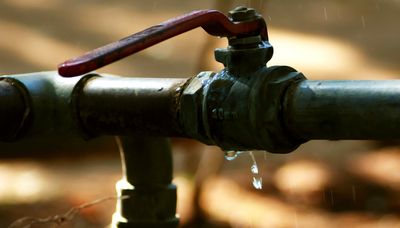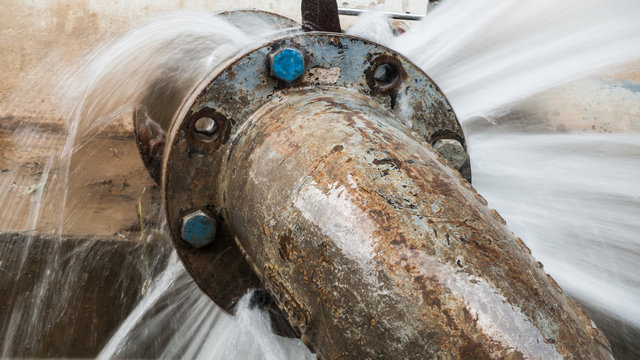This article below in relation to Reasons for Water Heater Leaks is amazingly enjoyable. Read on and make your own findings.

"Be careful of little costs. A little leak will sink a great ship." - Benjamin Franklin.
He could not have been much more right since water leaks in our homes lead to a waste of resources, raising our water expenses. Although this increase could seem negligible initially, it can lead to considerable expenditures that can damage your bank. Other than a boost in bills, water leaks also cause unwanted natural development, architectural damage, as well as even electric threats.
Determining if you have a water leak isn't always simple because of being not able to see most of the pipework in your home. If you have had a rise in your water costs recently, saw water discolorations on ceilings and also wall surfaces, scented lousy smell, and so on. You might intend to think about asking for plumbing solutions to get it took a look at.
There are a number of sources of water leakages, and we have assembled the common reasons listed below. Inspect to see if you have actually had relevant concerns in your home recently.
Obstructed drains
Food bits, dust, and grease can trigger stopped up drains pipes as well as block the passage of water in and out of your sink. Increased pressure within the seamless gutters can finish as well as create an overflow up cracking or breaking pipes if undealt with. To avoid clogged drains in your house, we advise you to stay clear of pouring bits down the drain and normal cleansing of sinks.
High water stress
You discovered your home water stress is more than common however after that, why should you care? It runs out your control.
It would certainly be best if you cared since your typical water stress ought to be 60 Psi (per square inch) and also although your house's plumbing system is created to stand up to 80 Psi. A boost in water stress can put a pressure on your home pipelines and lead to splits, or worse, ruptured pipelines. If you ever observe that your house water pressure is higher than common, connect with a professional regarding regulating it.
Deterioration
As your pipework gets older, it gets weaker as well as more prone to rust after the regular passage of water with them, which can gnaw at pipelines and trigger splits. A noticeable sign of corrosion in your home plumbing system is discoloration and also although this could be difficult to detect due to the majority of pipelines hidden away. We encourage doing a frequent examination every few years as well as alter pipes once they are old to make sure a sound plumbing system
Compromised pipeline joints
Pipeline joints are the parts of our plumbing system where the pipes connect. They are the weakest factor of our plumbing system. Because of this, they are more prone to wear and tear. It is necessary to keep in mind that even though pipes are created to withstand pressure and last for a while, they weren't created to last forever; therefore, they would weaken with time. This degeneration can cause fractures in plumbing systems. A common sign of damaged pipe joints is excessive noise from faucets.
Broken seals
Another cause of water leakages in residences is damaged seals of residence appliances that utilize water, e.g., a dishwasher. When such appliances are mounted, seals are installed around water ports for very easy passage of water via the maker. A broken seal can create leakage of water when in use.
With little or no knowledge of plumbing, recognizing your home's plumbing system enough to deal with some of these issues (without repercussion) can be an inconvenience. Get in touch with plumbing professionals in Pittsburgh, Providence, Rochester, as well as environ today, and also they'll make those problems go away.
He couldn't have actually been much more best due to the fact that water leakages in our residences result in a waste of resources, enhancing our water costs. If you have had a boost in your water expenses recently, observed water spots on ceilings and also wall surfaces, scented lousy odor, etc. An increase in water pressure can put a stress on your home pipelines and lead to splits, or worse, ruptured pipes. One more reason of water leaks in houses is damaged seals of residence devices that use water, e.g., a dish washer. When such appliances are installed, seals are set up around water ports for very easy flow of water through the equipment.
5 TIPS IN DETECTING A WATER LEAK IN YOUR HOUSE
Water leaks can be hard to find in your home, yet they can be so common. We rely on water every day in our home, which is why a leak can cause big problems. By detecting them early, you can save money and further damage, getting the problem fixed as soon as possible. Here are 5 tips to help you detect a water leak in your home, so you can contact a plumber straight away and get the issue sorted.
Check your water meter
Many people underestimate the value of the water meter in their home. It can be one of the best ways to tell if you have a leak early on, so you can get on top of it before issues start arising. Start by turning off all the water in your home: taps, washing machine, dishwasher, etc. Now take a look at the meter – if it’s still changing with everything turned off, it’s likely you have a fast-flowing leak that you need to get on top of straight away. If nothing changes, then leave your meter for an hour or two and come back to it. Did it change in this time? It’s likely you have a slower leak, which isn’t as urgent but still handy to get fixed so it doesn’t become a bigger problem.
Keep an eye on your bill
Another good way to detect a leak in your home is by keeping an eye on your water bill. It helps if you have a past bill from the same period of time. You can compare like for like and determine whether your water usage has increased significantly. If it has, there may be a leak in your system that you haven’t picked up before. A professional plumber can check through all of your pipes and determine where it is coming from.
Look for damage
If you have a leak inside your home, you will notice damage over time. Take a look at your showers and bathtubs and note whether any of the tiles surrounding the area seem to be discoloured or damaged in any way. There may be water stains, mould or peeling material that has resulted from a build up of moisture over time. Make sure you take a look under sinks at the back of cupboards that don’t get accessed regularly. This is where damage can go unnoticed and build up over periods of time.

Do you like reading about How to Find and Prevent Water Leaks in Your Home? Give feedback below. We'd be delighted to find out your responses about this entry. We hope to see you back again in the near future. Do you know another person who is excited about How to Find and Prevent Water Leaks in Your Home? Take a moment to promote it. Thanks so much for going through it.
Act fast, Call us!